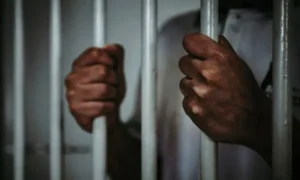GS Paper II – Polity
Context:
Recently, the Madras High Court raised concerns over the frequent and arbitrary use of the Goondas Act in Tamil Nadu, highlighting its misuse against individuals involved in minor or non-heinous offences. This has reignited the debate on preventive detention laws and their alignment with constitutional safeguards.
What is the Goondas Act?
-
The Goondas Act, officially known as the Tamil Nadu Prevention of Dangerous Activities of Bootleggers, Drug Offenders, Goondas, Immoral Traffic Offenders, Forest Offenders, Sand Offenders, and Slum Grabbers Act, 1982, allows for preventive detention of habitual offenders for up to one year without trial.
-
Similar versions of the Act exist in other states like Karnataka, Maharashtra, and Uttar Pradesh, under different names.
Key Provisions:
-
A person can be detained without filing a formal charge sheet if they are considered a threat to public order.
-
Detention can initially be for 3 months, extendable to 12 months with state government approval.
-
Applicable to a wide range of offenders including cybercriminals, sex offenders, and anti-social elements in recent amendments.
Recent Issues & Controversies:
-
Judicial Pushback: High Courts have struck down several detention orders as “mechanical and without application of mind.”
-
Political misuse: Allegations that the law is used to target political opponents or activists.
-
Violation of Fundamental Rights: Detention without trial violates Article 21 (Right to Life and Personal Liberty) unless “procedure established by law” is strictly followed.
Judicial Standpoints:
-
In A.K. Gopalan v. State of Madras (1950) and later in Maneka Gandhi v. Union of India (1978), the SC held that due process and fairness are essential even in preventive detention.
-
Courts have emphasized the need for “compelling reasons” and “subjective satisfaction” of detaining authority.
Why It Matters for Governance:
-
Strikes a balance between security and liberty.
-
Reflects challenges in law enforcement and criminal justice systems.
-
Indicates the need for police reforms and checks against executive overreach.





